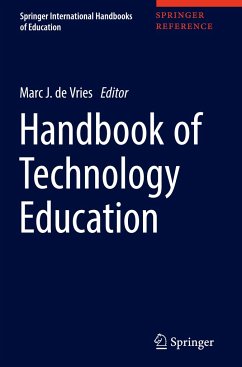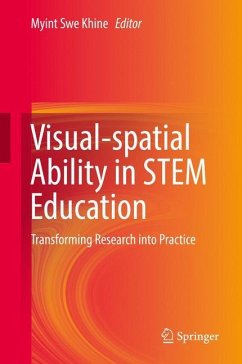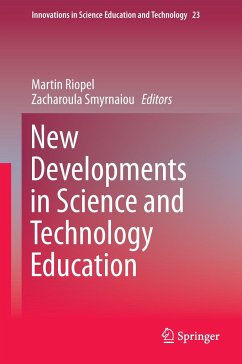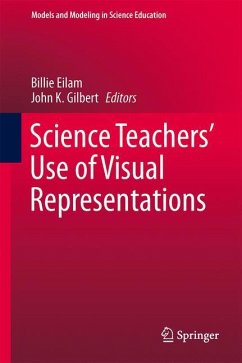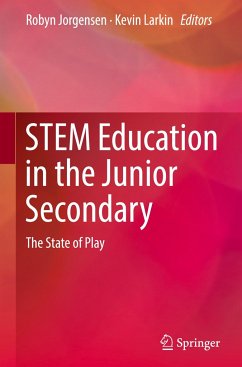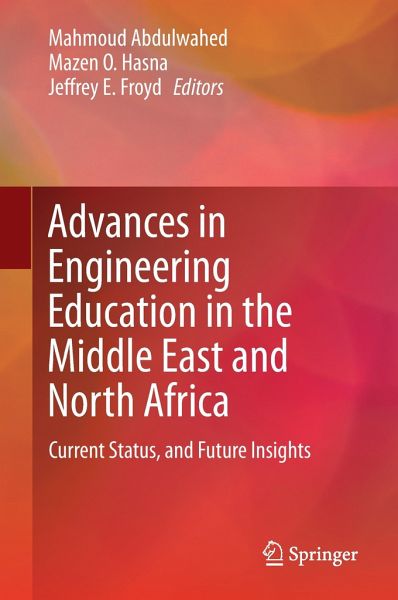
Advances in Engineering Education in the Middle East and North Africa
Current Status, and Future Insights
Herausgegeben: Abdulwahed, Mahmoud; Hasna, Mazen O.; Froyd, Jeffrey E.

PAYBACK Punkte
38 °P sammeln!
This book provides a collection of the latest advances in engineering education in the Middle East and North Africa (MENA) region and sheds insights for future development. It is one of the first books to address the lack of comprehensive literature on undergraduate engineering curricula, and stimulates intellectual and critical discourse on the next wave of engineering innovation and education in the MENA region. The authors look at recent innovations through the lens of four topics: learning and teaching, curriculum development, assessment and accreditation, and challenges and sustainability...
This book provides a collection of the latest advances in engineering education in the Middle East and North Africa (MENA) region and sheds insights for future development. It is one of the first books to address the lack of comprehensive literature on undergraduate engineering curricula, and stimulates intellectual and critical discourse on the next wave of engineering innovation and education in the MENA region. The authors look at recent innovations through the lens of four topics: learning and teaching, curriculum development, assessment and accreditation, and challenges and sustainability. They also include analyses of pedagogical innovations, models for transforming engineering education, and methods for using technological innovations to enhance active learning. Engineering education topics on issues such as construction, health and safety, urban design, and environmental engineering in the context of the MENA region are covered in further detail. The book concludes with practical recommendations for implementations in engineering education. This is an ideal book for engineering education academics, engineering curriculum developers and accreditation specialists, and deans and leaders in engineering education.






